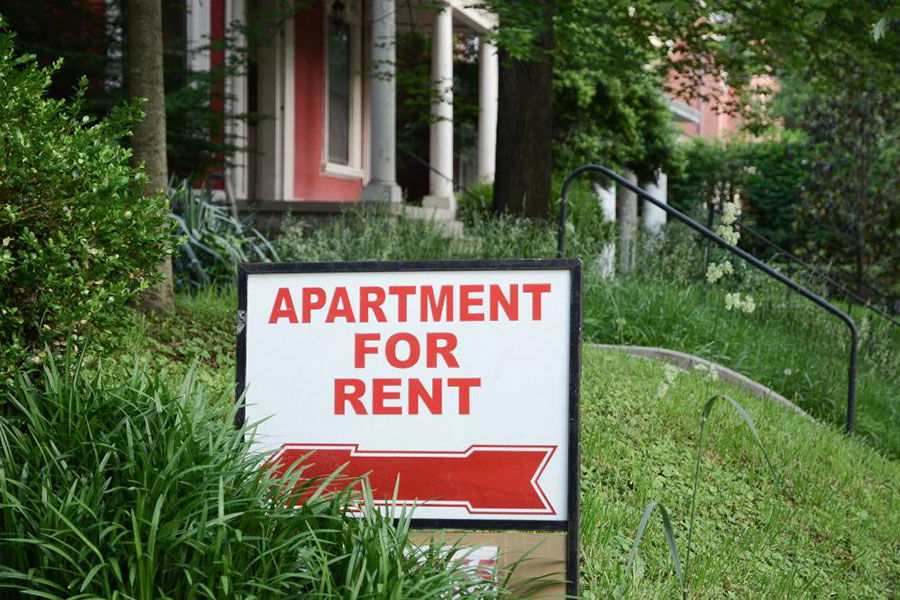Selling your house can feel overwhelming, especially if you want a quick sale at a great price. The process is a big deal, but there are proven steps that can help you attract serious buyers and get top dollar.

This guide breaks down what matters most—from setting the right price and preparing your home, to marketing, negotiation, and closing. If you want to sell your house fast without leaving money on the table, these tips will help you make it happen.
Key Takeaways
- Making repairs, cleaning, and staging your home—plus setting the right price—helps you attract more buyers and get stronger offers.
- Working with an experienced real estate agent can simplify the selling process, from pricing to negotiation and closing the deal.
- After the sale, keep track of your paperwork and talk to a tax professional so you’re prepared for any financial or tax changes.
7 Key Steps to Sell Your House Fast
Selling your house quickly and for the best price takes a clear plan and a little hustle. The faster you can move through the key steps, the more likely you are to attract motivated buyers and get strong offers.
Start by setting your goals and timeline. Decide what matters most—speed, profit, or both. Next, focus on cleaning, repairs, and staging so your home stands out online and in person.
Choose a competitive price, market your property aggressively, and be ready to evaluate and negotiate offers as soon as they come in. Acting strategically from day one helps you avoid delays and makes your home more appealing to serious buyers.
1. Set Clear Goals and a Realistic Timeline
Before listing your house, get specific about why you’re selling and what you want to achieve. Are you looking to move quickly for a new job, downsize, or simply maximize your profit? Knowing your priorities helps you make better decisions every step of the way.
Set a timeline that matches your needs. If you need to sell fast, you might have to price more competitively or accept an all-cash offer. If you have time, you can wait for the right buyer and possibly get a higher price. Clear goals and a firm timeline keep your sale on track and reduce stress as you move forward.
2. Price Your Home Strategically for a Fast Sale
Getting your price right from the start is key if you want to sell quickly. Overpricing can scare away buyers and leave your house sitting on the market. Pricing too low can leave money on the table.
Look at recent sales of similar homes in your neighborhood to set a competitive price. A real estate agent can run a comparative market analysis to help you find the sweet spot. Pay attention to current demand, seasonality, and any upgrades you’ve made. A smart price draws more interest, leads to more showings, and often results in better offers.
3. Get Your Home Ready to Impress Buyers
First impressions make a big difference. Clean every room, clear out clutter, and focus on curb appeal so your home looks inviting from the street. Mow the lawn, trim bushes, and freshen up landscaping. Small touches like a new welcome mat or fresh paint on the front door can make your house stand out.
Inside, tackle minor repairs and deep clean kitchens and bathrooms. Make sure each space feels bright and open. The more move-in ready your house looks, the more confident buyers will feel about making an offer.
4. Decide Which Repairs or Upgrades Are Worth the Investment
Not every repair pays off, so be strategic with your budget and time. Focus on updates that most buyers care about—fresh paint, fixing leaky faucets, replacing worn carpet, and updating outdated light fixtures. These small improvements can help your house sell faster and often bring a solid return.
If your home needs major work, weigh the cost against your timeline and sale goals. In some cases, it makes sense to sell as-is and adjust your price for buyers looking for a fixer-upper. Talk to your real estate agent about which repairs will actually help your bottom line.
5. Stage Your Home for Maximum Appeal
Staging can make a big difference in how quickly your home sells and how much buyers are willing to pay. Start by removing personal items, such as family photos and collectibles. This helps buyers picture themselves living in the space. Rearrange furniture to create open, inviting rooms that look bigger and brighter.
Focus on neutral decor and small touches that make each room feel welcoming. Add fresh towels in the bathrooms, new throw pillows in the living room, or a vase of flowers on the kitchen table. Good staging highlights your home’s best features and helps it stand out in photos and in-person showings. The more inviting your house feels, the easier it is for buyers to fall in love with it.
6. Market Your Home to Reach the Right Buyers
Marketing is about getting your home in front of as many interested buyers as possible. Invest in professional photos that show off your home’s best angles—great photos can make your listing pop online and draw more attention.
Write a listing description that highlights your home’s top features and recent updates. Focus on what makes your house unique, whether it’s a great backyard, a remodeled kitchen, or a quiet street.
Make sure your home is listed on the Multiple Listing Service (MLS) and all the top real estate websites. Share your listing on social media to reach even more people. Host open houses and private showings to give buyers a chance to experience the space in person. If you’re open to cash offers, mention it in your listing—some buyers are ready to close fast and can help you avoid delays.
7. Review Offers and Negotiate the Best Deal
Once offers start coming in, look at more than just the price. Check the buyer’s financing, down payment, contingencies, and proposed closing date. Offers with fewer contingencies and a strong pre-approval letter are usually safer bets, even if the price is slightly lower.
If you get multiple offers, compare all the terms carefully. Don’t be afraid to negotiate—counteroffers are common, and your real estate agent can help you get better terms.
Pay attention to inspection and appraisal timelines, since these can affect how quickly the sale closes. The goal is to choose the offer that best matches your needs, keeps the process moving, and gets you to the closing table with as little hassle as possible.
What to Expect During Closing
Closing is the final step, but it comes with its own checklist. After you accept an offer, the buyer will usually schedule a home inspection, and the lender will order an appraisal. You might need to negotiate repairs or credits if issues arise. Next, a title company checks for any liens and makes sure you can legally sell the property.
You’ll review and sign a stack of documents on closing day, including the deed and the settlement statement. Once the paperwork is complete, you hand over the keys and collect your proceeds. Watch out for common roadblocks like last-minute financing hiccups or missing documents—having a good real estate agent and staying organized can help prevent surprises and keep your sale on track.
After the Sale: What Comes Next
Once the sale is final, take a little time to get organized before your move. Start by saving copies of all your closing documents and records of any expenses tied to selling your house. Keeping everything in one place makes tax time much easier and can help if you ever need to prove the sale details in the future.
Next, plan your move early so you’re not scrambling at the last minute. Get quotes from moving companies, start packing non-essentials, and update your address with banks and other important contacts.
If you made a profit on your home, check in with a tax professional about any possible tax impacts, especially if you sold for much more than you originally paid. Most people won’t owe taxes on the sale of a primary home, but it’s better to be sure and avoid surprises.
Final Thoughts
Selling your house fast doesn’t have to be stressful or complicated. With a solid plan, smart pricing, and some prep work, you can attract serious buyers and move on to your next chapter with confidence. Take things one step at a time, lean on experts when you need to, and stay focused on your goals.
Ready to get started? Connect with a trusted local agent or start prepping your house this week. The right moves now can help you sell quickly and for the best price possible.
Frequently Asked Questions
What costs should I expect when selling my house?
Sellers usually pay several costs when selling a house. The biggest expense is often the real estate agent’s commission, which typically ranges from five to six percent of the sale price. You’ll also pay closing costs, which can include title fees, transfer taxes, and attorney fees.
Some sellers spend extra on repairs, staging, and cleaning to help the home sell faster. Your agent can give you an estimate of the total costs based on your situation.
Can I sell my house myself instead of using a real estate agent?
Yes, selling your house yourself is an option. This is known as “For Sale By Owner” (FSBO). However, selling a house involves complex tasks like pricing, marketing, negotiating, and handling legal paperwork.
Real estate agents possess the expertise and experience to deal with these challenges. If you opt for FSBO, be prepared for a significant time commitment and be ready to handle these tasks yourself.
What happens if my home doesn’t appraise for the sale price?
If your home appraises for less than the agreed sale price, it can create challenges. The buyer’s lender may not approve the full loan amount, which means the buyer must cover the gap or renegotiate the price.
You and the buyer can try to meet in the middle, appeal the appraisal, or the buyer can walk away if the contract has an appraisal contingency. Discuss your options with your real estate agent to decide the best next step.
What is a seller’s market, and how can it impact my home sale?
A seller’s market occurs when the demand for homes exceeds the current supply. This often results in homes selling more quickly and at higher prices. If you’re selling your house in a seller’s market, it can be an advantage as you may get multiple offers and a higher sale price.




